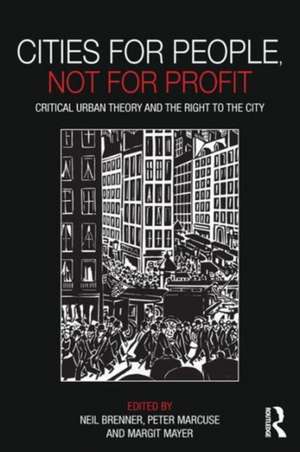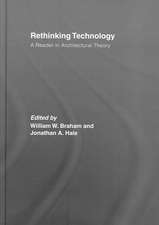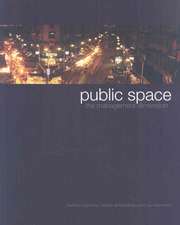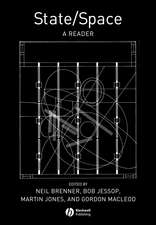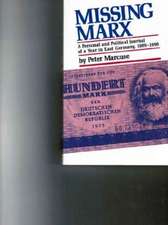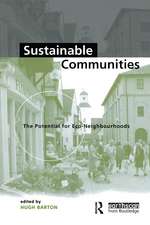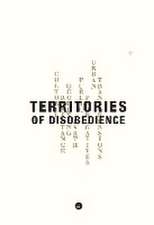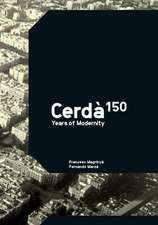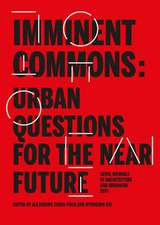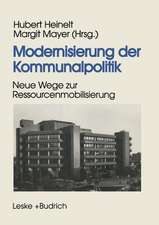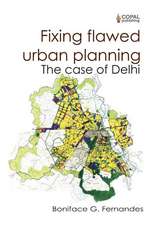Cities for People, Not for Profit: Critical Urban Theory and the Right to the City
Editat de Neil Brenner, Peter Marcuse, Margit Mayeren Limba Engleză Paperback – 14 oct 2011
The contributors provide cutting-edge analyses of contemporary urban restructuring, including the issues of neoliberalization, gentrification, colonization, "creative" cities, architecture and political power, sub-prime mortgage foreclosures and the ongoing struggles of "right to the city" movements. At the same time, the book explores the diverse interpretive frameworks – critical and otherwise – that are currently being used in academic discourse, in political struggles, and in everyday life to decipher contemporary urban transformations and contestations. The slogan, "cities for people, not for profit," sets into stark relief what the contributors view as a central political question involved in efforts, at once theoretical and practical, to address the global urban crises of our time.
Drawing upon European and North American scholarship in sociology, politics, geography, urban planning and urban design, the book provides useful insights and perspectives for citizens, activists and intellectuals interested in exploring alternatives to contemporary forms of capitalist urbanization.
| Toate formatele și edițiile | Preț | Express |
|---|---|---|
| Paperback (1) | 390.73 lei 3-5 săpt. | +21.65 lei 7-13 zile |
| Taylor & Francis – 14 oct 2011 | 390.73 lei 3-5 săpt. | +21.65 lei 7-13 zile |
| Hardback (1) | 1331.89 lei 6-8 săpt. | |
| Taylor & Francis – 14 oct 2011 | 1331.89 lei 6-8 săpt. |
Preț: 390.73 lei
Preț vechi: 424.70 lei
-8% Nou
Puncte Express: 586
Preț estimativ în valută:
74.76€ • 78.06$ • 61.88£
74.76€ • 78.06$ • 61.88£
Carte disponibilă
Livrare economică 14-28 martie
Livrare express 28 februarie-06 martie pentru 31.64 lei
Preluare comenzi: 021 569.72.76
Specificații
ISBN-13: 9780415601788
ISBN-10: 0415601789
Pagini: 296
Ilustrații: 17 black & white halftones, 2 black & white line drawings
Dimensiuni: 156 x 234 x 15 mm
Greutate: 0.48 kg
Ediția:1
Editura: Taylor & Francis
Colecția Routledge
Locul publicării:Oxford, United Kingdom
ISBN-10: 0415601789
Pagini: 296
Ilustrații: 17 black & white halftones, 2 black & white line drawings
Dimensiuni: 156 x 234 x 15 mm
Greutate: 0.48 kg
Ediția:1
Editura: Taylor & Francis
Colecția Routledge
Locul publicării:Oxford, United Kingdom
Public țintă
Postgraduate and UndergraduateCuprins
1. Cities for People, Not For Profit: An Introduction Neil Brenner, Peter Marcuse and Margit Mayer 2. What Is Critical Urban Theory? Neil Brenner 3. Whose Right(S) To What City? Peter Marcuse 4. Henri Lefebvre, The Right to the City and the New Metropolitan Mainstream Christian Schmid 5. The ‘Right to the City’ In Urban Social Movements Margit Mayer 6. Space and Revolution in Theory and Practice: Eight Theses Kanishka Goonewardena 7. Critical Development Studies and the Praxis of Planning Katharine N. Rankin 8. Assemblages, Actor Networks and the Challenges of Critical Urban Theory Neil Brenner, David J. Madden and David Wachsmuth 9. 'Creative Cities’ and the Rise of The Dealer Class Stefan Krätke 10. Critical Theory and ‘Gray Space’: Mobilization of the Colonized Oren Yiftachel 11. Missing Marcuse: On Gentrification and Displacement Tom Slater 12. An Actually Existing Just City? The Fight for the Right to the City in Amsterdam Justus Uitermark 13. A Critical Approach to Solving the Housing Problem Peter Marcuse 14. Socialist Cities, for People or for Power? Bruno Flierl in Conversation with Peter Marcuse 15. Right to the City – From Theory to Alliance Jon Liss 16. What is to be Done, and Who the Hell is Going to do it? David Harvey and David Wachsmuth. Afterword by Peter Marcuse: "Light Verse"
Notă biografică
Neil Brenner is Professor of Urban Theory at the Graduate School of Design, Harvard University. He formerly served as Professor of Sociology and Metropolitan Studies at New York University. He is the author of New State Spaces: Urban Governance and the Rescaling of Statehood (Oxford University Press, 2004); co-editor of Spaces of Neoliberalism (with Nik Theodore; Blackwell, 2002); and co-editor of The Global Cities Reader (with Roger Keil; Routledge, 2006). His research interests include critical urban theory, sociospatial theory, state theory and comparative geopolitical economy.
Peter Marcuse, a planner and lawyer, is Professor Emeritus of Urban Planning at Columbia University. He is the co-editor of Globalizing Cities (Blackwell, 2000) as well as of States and Cities: The Partitioning of Urban Space (Oxford University Press, 2002) and Searching for the Just City (Routledge, 2009). His fields of research include city planning, housing, homelessness, the use of public space, the right to the city, social justice in the city, globalization, urban history, the relation between cultural activities and urban development, and, most recently, solutions to the mortgage foreclosure crisis. He is beginning work on a book on critical planning, and a companion volume including analytic cases culled from past writings.
Margit Mayer teaches comparative and North American politics at the Freie Universität Berlin. Her research focuses on comparative politics, urban and social politics, and social movements. She has published on various aspects of contemporary urban politics, urban theory, and (welfare) state restructuring, much of it in comparative perspective. She is co-editor of Politics in European Cities (with Hubert Heinelt; Birkhäuser, 1993), Urban Movements in a Globalising World (with Pierre Hamel and Henri Lustiger-Thaler; Routledge, 2000) and Neoliberal Urbanism and its Contestations – Crossing Theoretical Boundaries (with Jenny Künkel; Palgrave, 2011).
Peter Marcuse, a planner and lawyer, is Professor Emeritus of Urban Planning at Columbia University. He is the co-editor of Globalizing Cities (Blackwell, 2000) as well as of States and Cities: The Partitioning of Urban Space (Oxford University Press, 2002) and Searching for the Just City (Routledge, 2009). His fields of research include city planning, housing, homelessness, the use of public space, the right to the city, social justice in the city, globalization, urban history, the relation between cultural activities and urban development, and, most recently, solutions to the mortgage foreclosure crisis. He is beginning work on a book on critical planning, and a companion volume including analytic cases culled from past writings.
Margit Mayer teaches comparative and North American politics at the Freie Universität Berlin. Her research focuses on comparative politics, urban and social politics, and social movements. She has published on various aspects of contemporary urban politics, urban theory, and (welfare) state restructuring, much of it in comparative perspective. She is co-editor of Politics in European Cities (with Hubert Heinelt; Birkhäuser, 1993), Urban Movements in a Globalising World (with Pierre Hamel and Henri Lustiger-Thaler; Routledge, 2000) and Neoliberal Urbanism and its Contestations – Crossing Theoretical Boundaries (with Jenny Künkel; Palgrave, 2011).
Recenzii
"From some of the most important urban scholars of our time comes a book that confronts the central political question of our time: can cities be for people? Written against the backdrop of both the global financial crisis and intensifying social movements, this collection of essays is a wonderful example of why critical theory matters for social change." - Ananya Roy, Professor of City & Regional Planning and Co-Director, Global Metropolitan Studies, University of California, Berkeley, USA
'The contributors provide analyses of contemporary urban restructuring, including the issues of neoliberalization, gentrification, colonization, "creative" cities, architecture and political power, subprime mortgage foreclosures and the ongoing struggles of "right to the city" movements. The book also explores the diverse interpretive frameworks – critical and otherwise – that are currently being used in academic discourse, in political struggles, and in everyday life to decipher contemporary urban transformations and contestations.' - Lonaard Magazine, Issue 12, Vol. 2, November 2012
"Cities for people, not for profits came out at a time when such an edition was needed for critical urban theory. The chapters provide a holistic approach discussing both, theory and practise, looking at it on a global scale, putting emphasis on the housing market where injustice is most evident and providing an outlook on what is needed for overcoming the recent (urban) crises. The book is highly recommended to those seeking to get started with critical urban theory, looking for an adequate update on theories formulated in the 1970s and wanting to know how desirable social urbanization could be reached. Cities for people, not for profit is a book coming out just at the right time."— Johannes Riegler, Austrian Institute of Technology
'The contributors provide analyses of contemporary urban restructuring, including the issues of neoliberalization, gentrification, colonization, "creative" cities, architecture and political power, subprime mortgage foreclosures and the ongoing struggles of "right to the city" movements. The book also explores the diverse interpretive frameworks – critical and otherwise – that are currently being used in academic discourse, in political struggles, and in everyday life to decipher contemporary urban transformations and contestations.' - Lonaard Magazine, Issue 12, Vol. 2, November 2012
"Cities for people, not for profits came out at a time when such an edition was needed for critical urban theory. The chapters provide a holistic approach discussing both, theory and practise, looking at it on a global scale, putting emphasis on the housing market where injustice is most evident and providing an outlook on what is needed for overcoming the recent (urban) crises. The book is highly recommended to those seeking to get started with critical urban theory, looking for an adequate update on theories formulated in the 1970s and wanting to know how desirable social urbanization could be reached. Cities for people, not for profit is a book coming out just at the right time."— Johannes Riegler, Austrian Institute of Technology
Descriere
The financial crisis has given new impetus to the struggles of oppositional urban social movements that have long emphasized the injustice, destructiveness and unsustainability of capitalist forms of urbanization. Through contributions by urban theorists, sociologists, geographers, political scientists, planners and activists, the volume explores the possibilities for, and constraints upon, critical urban theory and practice today. Ideas are linked by a common theme: the difficulties that are created for people by cities organized for profit, and the existing trends, struggles and movements that might change their course to construct alternative forms of urbanism. The slogan, "cities for people, not for profit," thus sets into stark relief what the authors view as a central political objective for ongoing efforts, at once theoretical and practical, to address the global urban crises of our time.
